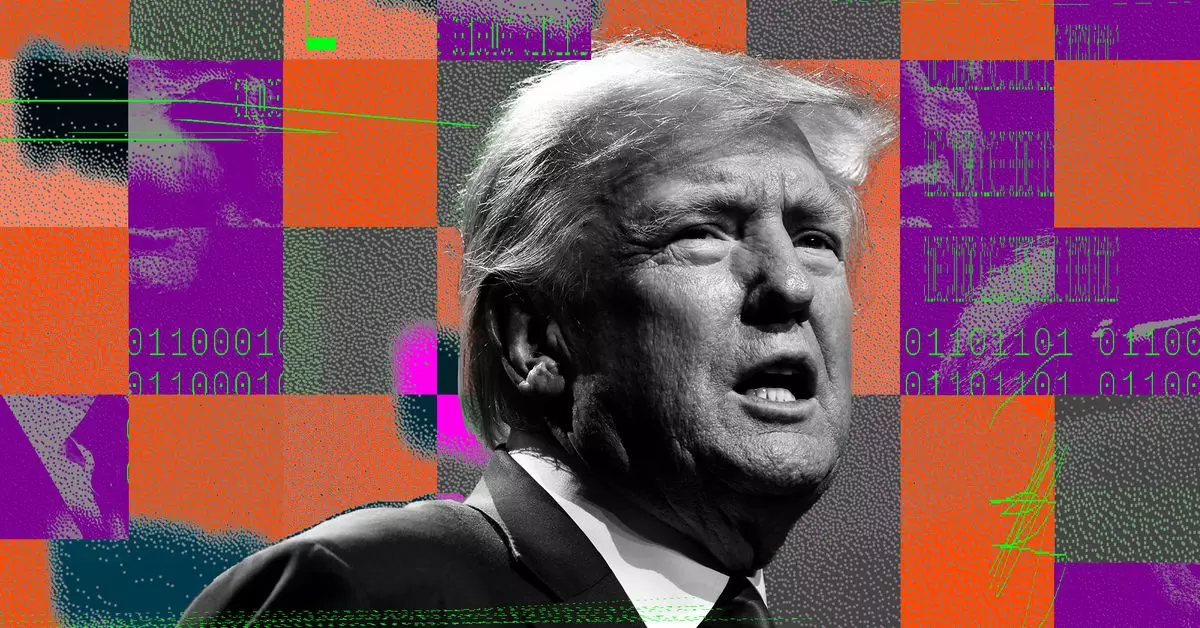The ongoing turbulence surrounding TikTok has plunged the platform into a legal battlefield that not only involves social media dynamics but also the intricate interplay of politics, national security, and free speech. At the heart of this controversy lies former President Donald Trump’s request to the Supreme Court over a potential ban on TikTok, a move laden with implications for the future of digital expression and political engagement in America.
The Context of the TikTok Controversy
The backdrop of Trump’s legal argument is rooted in a complex narrative. TikTok, owned by the Chinese company ByteDance, has faced scrutiny from U.S. lawmakers, who argue that the platform poses national security risks due to the potential for user data exposure to the Chinese government. This scrutiny has escalated to legislative measures that could effectively impose a ban on TikTok, invoking First Amendment considerations that protect freedom of speech. Therefore, this scenario illustrates a tug of war between national security interests and the right to free expression, making the case particularly significant in the public discourse.
Notably, a significant moment occurred when the Supreme Court agreed to hear arguments related to this issue, focusing on whether a Congressional ban on TikTok might infringe upon the First Amendment. The urgency of these discussions is underscored by a looming deadline — January 19th — established by Congress, which gives the President discretion to postpone any enforcement if a valid negotiation effort appears underway. Trump’s legal request seeks to extend this deadline, positing that his capabilities as a seasoned dealmaker could yield a resolution.
In his amicus brief, Trump asserts that he possesses a unique blend of skills and political clout, crucial for navigating the TikTok conundrum. Declaring himself the only individual with a comprehensive mandate to engage in negotiations, he emphasizes this as a vital moment to protect a social media platform that he views as instrumental for political expression and discourse. This perspective heavily contrasts with the stance he took during his presidency, where a fervent push for a TikTok ban was a signature issue.
Interestingly, Trump has modified his outlook post-2020 election, especially as it became evident that TikTok played a significant role as a tool for voter engagement among younger demographics. His pivot underscores not only a personal interest in utilizing the platform for his messaging but also an acknowledgment of its growing importance in the broader political landscape.
Furthermore, the arguments put forth hinge on broader implications regarding the power dynamics at play when a government opts to restrict access to a platform based on perceived threats. By referencing incidents like Brazil’s temporary banning of Elon Musk’s Twitter, Trump emphasizes the potential overreach of governmental authority and frames his negotiation as a necessary counterbalance to increasing censorship.
While Trump’s appeal to the Supreme Court presents a strategy rooted in negotiation and compromise, significant political opposition remains ferocious. A coalition comprising senators, congressmen, and various states is actively petitioning for the Supreme Court to reject any efforts that could empower TikTok or delay decisive action. This reflects a persistent ideological divide regarding the platform’s operations within the U.S. and the continuing concerns over data privacy and foreign influence.
As the deadline approaches and Trump’s leverage as President-elect grows, the implications will extend beyond TikTok itself. The outcome of this legal battle will set precedents concerning the balance of governmental authority, regulatory frameworks for social media platforms, and the delicate intricacies of political negotiations in high-stakes scenarios.
The TikTok dilemma encapsulates not merely a fight for a social media platform’s existence but a significant intersection of politics, law, and public sentiment. With Trump’s maneuvering drawing lines between negotiation and legislation, the unfolding events will be critical in determining the landscape for digital expression and governance in the years to come.


Leave a Reply